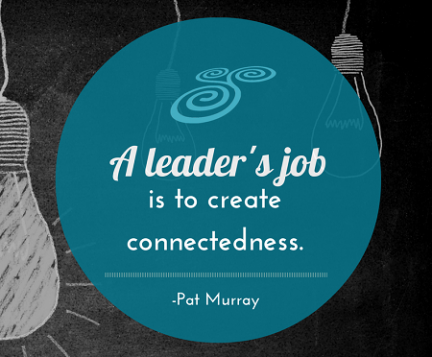
Five Epiphanies
On the first Saturday of each month, my subscription to the Wall Street Journal includes a supplement called Wall Street Journal Magazine. One of the features of this glossy publication is a section called “The Columnists” wherein the magazine invites six luminaries to weigh in on a single topic. Epiphanies was the topic for May and one of the six invited columnists was Elizabeth Gilbert, author of the book Eat, Pray, Love. Ms. Gilbert made this comment on the topic:
“The reason epiphanies feel so surprising is twofold. First, it’s the surprise of seeing a truth revealed. Second, it’s the deep shock of wondering why it took you so long to see it in the first place.”
Ms. Gilbert’s explanation resonated with me. She got me musing about the leadership epiphanies that surprised me most and had the greatest impact on my work as an executive coach. The lessons I learned apply to most groups and work teams and to individuals as well. Here are my top five epiphanies:
- Epiphany #1. I had been coaching for less than three months when I read Susan Scott’s book Fierce Conversations. She devoted an entire chapter to silence and challenged coaches to “let your silence do your heavy lifting.” Her advice changed how I coach. At first, it wasn’t easy to resist filling the silence with my own voice. I’m still surprised at how much I learn when I quit talking and allow others to fill the silence with their voices.
- Epiphany #2. My second epiphany also occurred courtesy of Ms. Scott. I attended her coaching workshop, where she told the participants that “the conversation is the relationship.” That was an a-ha moment. It taught me that as conversations in my groups become more authentic and robust, the bonds among the members grow stronger and the group becomes more powerful. In contrast, groups that avoid addressing real issues never grow strong. This is the reason most weekly staff meetings are so deadly; group members conspire unconsciously to avoid addressing the uncomfortable issues – the issues that most need to be addressed and when addressed, make the group strong.
- Epiphany #3. Kurt Lewin, the man who is considered the father of modern social psychology wrote,
“All actions are based on the ground a person happens to stand on. The firmness of their actions and the clearness of their decisions depend largely upon the stability of the ground, although they may not even be aware of its nature.”
This epiphany convinced me that my No. 1 job, whether I’m coaching individuals or coaching in groups, is to build trust, to make the ground under our feet stable. When the ground is stable, groups address the real issues.
- Epiphany #4. I learned more about coaching in a group setting from a consultant named Pat Murray than I’ve learned from anyone else. On numerous occasions, I’ve heard him say, “A leader’s job is to create connectedness,” and that has guided how I interact with my groups and how I coach others to lead. Connectedness doesn’t mean being friends with everyone. It’s about creating meaningful relationships that create trust, allowing us to interact authentically with others. It means connecting in a way that makes others feel seen, heard and valued.
- Epiphany #5. Lee Thayer is the author a Leadership: Thinking, Being, Doing, a book that Dr. Thayer aficionados call a relentless assault on conventional thinking. He devotes most of a chapter to people who are had by their cause. Here’s what he says:
“There is a huge difference between having a cause and being had by a cause. A person who merely has a cause will usually be willing to compromise. A person who is had by a cause will be unreasonable, relentless, and even ruthless, especially with himself or herself. The more you are had by your cause, the more necessity there is for you to see it through. A follower has to determine two things: Is this the person we need? Does this person have what it takes to get us where he or she intends to go? You are compelling to others because they cannot imagine you could escape your duty to your own cause.”
The thought of being had by my cause has driven me since 2007. It drives how I recruit people to my groups and how I coach. It’s a big idea and part of the reason why I’ll be traveling to North Carolina in August to hear Dr. Thayer speak.
The great thing about epiphanies is that they can pop up any time, any day. You never know when you’ll experience one of those a-ha moments. I hope this blog is the source of an epiphany for everyone who reads it.
